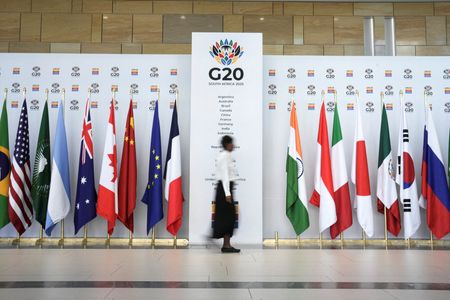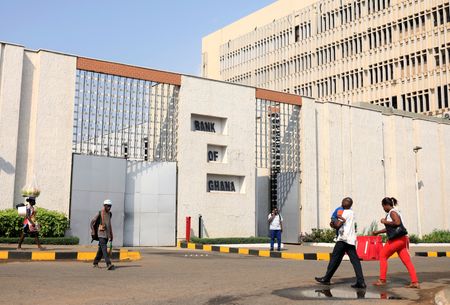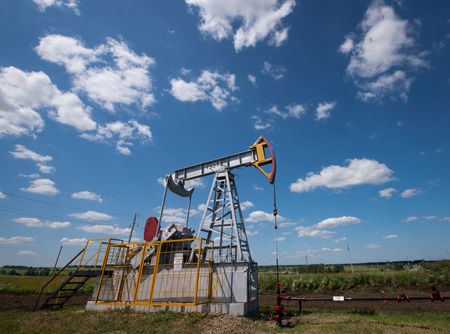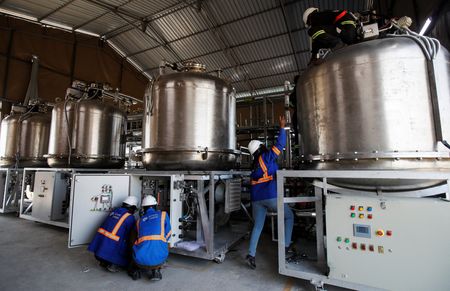By Siyi Liu
SINGAPORE (Reuters) -Oil prices rose on Friday after the European Union agreed to new sanctions against Russia, also underpinned by supply concerns following drone attacks on northern Iraqi oilfields and tight market fundamentals.
Brent crude futures climbed 62 cents, or 0.89%, to $70.14 a barrel as of 0652 GMT, U.S. West Texas Intermediate crude futures advanced 64 cents, or 0.95%, to $68.18 a barrel.
The EU reached an agreement on an 18th sanctions package against Russia over its war in Ukraine, with measures aimed at dealing further blows to Russia’s oil and energy industries.
Its latest sanctions package will lower the G7’s price cap for Russian crude oil to $47.6 per barrel, diplomats told Reuters.
Four days of drone attacks on oilfields in Iraqi Kurdistan that shut down half the region’s output have supported prices, pushing both contracts up by $1 on Thursday.
Additionally, seasonal travel demand has propped up the market. In the first two weeks of July, global oil demand has averaged 105.2 million barrels per day (bpd), up by 600,000 bpd from a year earlier and largely in line with forecasts, JPMorgan analysts said in a research note.
“Crude prices have been broadly stable this week, with no significant moves as the impact of OPEC+ supply increases has been offset by strong seasonal demand in the U.S.,” said LSEG analyst Anh Pham.
U.S. crude inventories fell by a larger-than-expected 3.9 million barrels last week compared with analysts’ expectations in a Reuters poll for a 552,000-barrel draw, government data on Wednesday showed.
Demand in Asia also firmed as refineries came back from maintenance amid peak seasonal demand.
Near-term oil fundamentals are likely to remain supportive, with the market set to remain fairly tight through this quarter, before becoming better supplied from the last three months of the year, ING analysts said in a note on Friday.
Still, the uncertainty around U.S. tariff policy, which appears unlikely to be settled until after August 1, is weighing on the market. Plans by major oil producers to remove output cuts will also add to supply as the seasonal Northern Hemisphere summer demand ends. For this week, both Brent and WTI were down by 0.30% and 0.42% respectively.
Oil output in the semi-autonomous Kurdistan region has been slashed from about 280,000 bpd to between 140,000 bpd and 150,000 bpd, two energy officials said.
Officials pointed to Iran-backed militias as the likely source of attacks this week on the region’s oilfields, although no group has claimed responsibility.
Despite the attack, Iraq’s federal government said on Thursday that Iraqi Kurdistan will resume oil exports through a pipeline to Turkey after a two-year halt.
(Reporting by Siyi Liu in Singapore; Editing by Christian Schmollinger, Kate Mayberry and Sharon Singleton)










